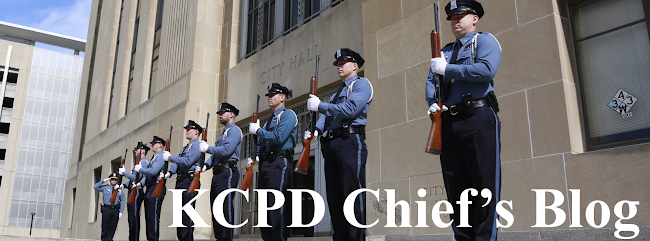Oftentimes when I speak to young men, I share with them they can be and do anything in life, and that with determination, focus and – most importantly – a strong faith in God, that any goal can be achieved. My goal early on in life was to become a police officer. As I have maneuvered around many obstacles while ascending the rank structure of the police department, I have realized that opportunities existed and have taken advantage of those opportunities. Some of those opportunities included furthering my education, to serve as a mentor and to be mentored, and to engage non-traditional segments of the community in crime reduction strategies, among others.
Too often, the young men I engage in conversation have no hope for the future, no goals and just an overall feeling of despair. My story is and will continue to be, work hard, and you will be successful in whatever field you elect to pursue. I share with them that my starting salary on the police department was $20,000 a year, and now my yearly salary is nearly $186,874. Job satisfaction, a desire to serve others as well as a commitment to endure regardless of obstacles placed in your path is more important than financial compensation. Do not get me wrong, financial compensation is needed because I was taught at an early age that if a man does not work, he does not eat!
I hold no ill will to those who perceive my compensation to be excessive. As long as I serve as the chief of police of our great city, I will give nothing but my best, as I have during my 29-year with career with this great department.
To do that, I don’t just work during business hours. The safety of our city is on my mind nearly all the time. I don’t wake up to a clock. I usually sleep from midnight to 5 a.m. on a good day. I think it is very important for me to be out engaging the community and responding to incidents. How much is it worth to the city to prevent large-scale civil unrest, which has the potential to cost a lot more than any overtime I may accrue? I have and will continue to respond to potentially volatile situations. I am not a sit-in-the-office kind of guy. Being visible in the community is necessary and has proven beneficial, especially during the recent incidents of civil unrest around the country. One of my top priorities has been to reduce violent crime, and last year we experienced our lowest homicide rate in 42 years. I also like to keep in touch with our front-line officers and staff and see first-hand the good work they’re doing.
Members of our department who are in managerial positions (captain or above) earn compensatory time instead of overtime pay. Per policy, they can earn up to 160 hours of compensatory time (but can only be compensated for a maximum 120 hours upon retirement). I am not bound by these restrictions. I serve at the pleasure of the Board of Police Commissioners, and they have not placed a limit on the amount of compensatory time I can receive. However, they do keep tabs on it and have previously requested my balance. Currently I have more than 1,800 hours of compensatory time accumulated. This amount is cumulative from many years of work and because I rarely take time off. To use it all up, I’d have to be gone for months, and I refuse to do that.
Although permitted by policy, I rarely submit requests for compensation for less than three hours worked. Policy permits compensation for 7 minutes or more worked in excess of an eight-hour work day. I feel I am blessed to be able to serve our community with a great salary, so there is no need to receive extra compensation for everything I do. I do not routinely submit requests for overtime.
In fact, I have never submitted overtime for any incident of civil unrest where I only observed from afar, nor have I ever submitted overtime for any work performed while at home. It is 4 a.m. as I write this. I am starting my day by preparing notes for this blog. My day is scheduled to end after 7:30 p.m. if all goes well. There will not be, nor should there be, any extra compensation received for today. I make regular appearances on early television morning shows for no compensation. Due to prior incidents of unrest, I spend most Friday and Saturday evenings on the Country Club Plaza during the summer and tweet to let the public know about what’s happening there, which also is mostly uncompensated.
My salary is in line with previous KCPD chiefs. When the prior chief left in 2011, his salary was about $180,000. Previous police chiefs also received compensatory time just as I do, and I am not aware that their use of it ever was questioned. Regardless, I understand I am a public servant, and I must remain open about the way I operate and use taxpayer money.
At the end of my career, I can elect to remain on payroll after I physically leave the department to draw down my compensatory balance over time, or I can receive lump-sum compensation for any leave balance.
Again, I felt a strong desire to share with everyone about my compensation since several media outlets have shown an interest. There has not been and will never be any misuse of taxpayer dollars. I will continue to earn every penny of my compensation as I focus on reducing crime and helping people be and feel safe!
Send comments to kcpdchiefblog@kcpd.org.
Send comments to kcpdchiefblog@kcpd.org.
